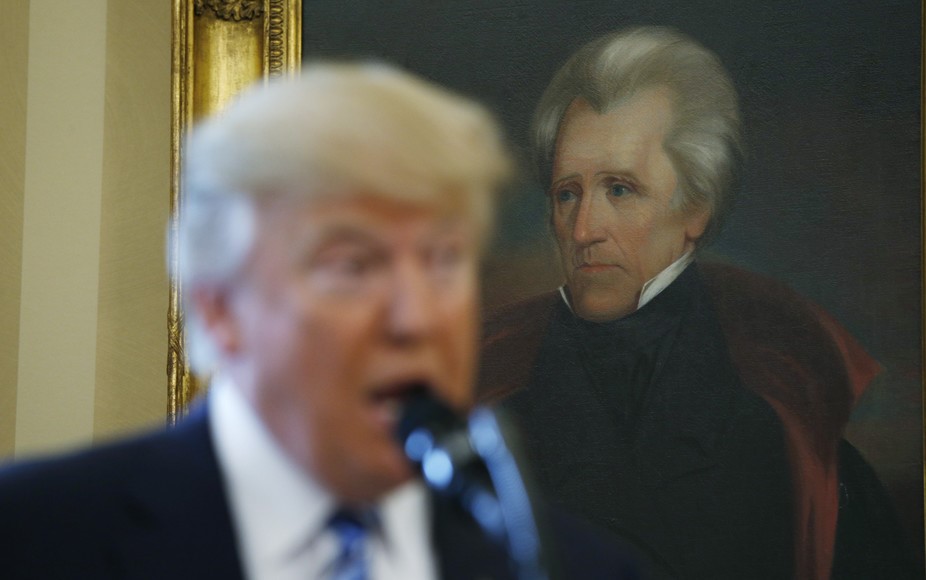
29/03/2017, by CLAS
Andrew Jackson, Donald Trump, and the populist reshaping of reference
‘Jackson was an American hero, first as a brilliant general … and later as the seventh President of the United States, when he fought to defend the forgotten men and women from the arrogant elite of his day, does it sound familiar?’ – President Donald J. Trump, Weekly Address 18/03/2017
Since Donald Trump announced he was running for President in the summer of 2015 much ink has been spilled attempting to understand first his candidacy, and later his presidency, in terms of comparison to various historical figures that preceded him. One such comparison that has been frequently made is to Andrew Jackson, the President of the United States from 1829 to 1837. It is not only external commentators that have noted the similarity of Jackson and Trump’s populist brand of politics; the Trump administration has itself actively and consistently courted this comparison. Not only has Trump verbally praised Jackson, calling him ‘an amazing figure in American history,’ but since taking office has made physical statements of his admiration: hanging a portrait of Jackson in the oval office, laying a wreath at Jackson’s grave, and staging a rally in Nashville to commemorate the 250th anniversary of Jackson’s birth. His opening question at the weekly address was merely the latest in this line of calculated allusions to Jackson by the Trump administration, the expected answer to his question being ‘yes.’
These allusions to Jackson have broken with a considerable degree of conservative orthodoxy. Whether it is due to his uncomfortable record with slavery and native peoples, his conflict with the Bank of the United States, or his membership of the Democratic Party, modern American conservatives have traditionally avoided comparisons with Jackson, instead favouring allusions to more conventional Republican figures such as Ronald Reagan. Indeed, in a polemical 2016 documentary film, Hillary’s America, the conservative political commentator Dinesh D’Souza used the example of Jackson to draw attention to the historic racism and cruelty of the Democratic Party, in contrast with the party’s image as a defender of oppressed or marginalised groups. Trump’s self-identification with Jackson forms part of his wider breaking with the post-war conservative consensus established under the auspices of figures such as William F. Buckley Jnr during the 1950s and ‘60s.
There are undeniably numerous similarities between Jackson and Trump: both cast themselves as political outsiders fighting a corrupt establishment, and both made innovative use of developing forms of media during their campaigns (Jackson through newspapers, Trump through Twitter). It could even be argued that Jackson’s treatment of native peoples has found analogue in Trump’s approval of the Keystone XL and Dakota Access pipelines. The comparison has also received fierce criticism, with historian H.W. Brands arguing that, where Jackson’s populism ‘was the real thing,’ Trump’s ‘penthouse populism is a sham.’
Yet the validity of the comparison is possibly not as important as the fact that it is being made, and by Trump’s own administration at that. Unlike most comparisons of sitting presidents to historical figures, this is not simply an external commentator using historical precedent to understand and explicate contemporary circumstances, but rather the holder of the highest office in the land using a historical example as a model upon which to understand, and inform, his own actions. Trump’s arguably unprecedented modelling of himself on Jackson not only provides insight into how he understands his Presidency as fitting into the longue durée of American history, but also gives us an invaluable clue as to how he may act as his presidency continues.
Gary Fisher, PhD Student, Classics and American and Canadian Studies
No comments yet, fill out a comment to be the first

Leave a Reply